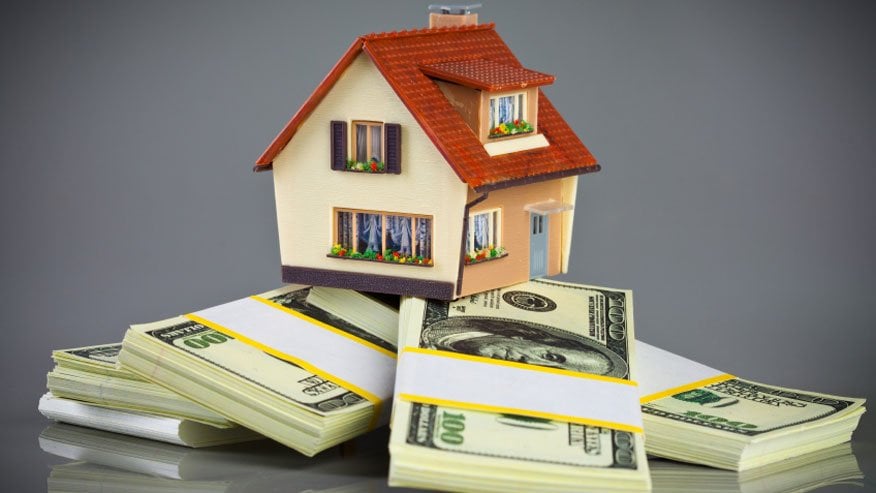Ask Brian is a weekly column by Real Estate Expert Brian Kline. If you have questions on real estate investing, DIY, home buying/selling, or other housing inquiries please email your questions to [email protected].

Question from Bruce in RI: Hi Brian, How can any average Joe afford to buy a house today? I’m 37 and have wanted to buy a home for the past four years. Every time I set a target for saving the down payment, the goalposts move because of the out of control rising house prices. I’m not very sophisticated in this area but why are house prices appreciating so much faster than the inflation rate? Shouldn’t inflation and house prices increase at close to the same rate? I’m a believer that homeownership is still the American Dream, but why can’t I afford to buy my first home?
Answer: Hello, Bruce. Inflation and home value appreciation are definitely top-of-mind metrics to consider when calculating accurate home values. Another factor that needs to be considered is mortgage interest rates because this also has a major effect on monthly mortgage payments. Mostly, what this all boils down to is how affordable homes are today compared to some time in the past? The past can be anything. It can be last month, a year ago, five years ago, or 30 years ago.
Homeownership is affected by many factors with appreciation, inflation, and mortgage rates being the biggest affordability drivers. By studying key home price metrics like the Case-Shiller House Price Index and making inflation adjustments using the consumer price index, the Real Cost of home affordability is not much different today than it was shortly before the Great Recession (2006 - 2007). The Great Recession resulted from rapid house price increases (until the bottom fell out for speculators). In fact, when today’s low mortgage rates are included in calculating mortgage affordability, today’s home affordability costs are about the same as in 2004.
When calculating home affordability over time, I think it’s wise to exclude the Great Recession from most calculations. Real estate speculation caused the Great Recession when overinflated house prices drove mortgage costs to unreasonable and unsustainable highs (mostly with exotic mortgages). The result of the Great Recession was tons of foreclosures that drove prices back down until 2012. Since about 2012, prices have been increasing on a mostly normal trajectory. When this recession is excluded, but appreciation, inflation, and mortgage rates are included, homeownership affordability has surprisingly not changed much over the past 15 or 18 years.
Let’s start with the ‘cash price’ for houses. Without going into the mathematics, if you adjust for inflation and appreciation, an all-cash purchase is about 58% higher today than in 2013. This is ‘all cash’, so you don’t factor in the difference for mortgage rates. That 58% sounds like a really scary number but if you do not adjust for inflation, the change in straight dollars jumps to about 112%. The 112% represents appreciation without making any adjustments. That is a huge increase and what you see when you only look at home value appreciation.
Inflation and mortgage rates are about the ‘time value of money.’ Based on inflation, one dollar today is worth more than one dollar in the future. That’s how mortgages (installment payments) make a high-cost home purchase more affordable. Generally, when inflation is high, mortgage rates are also high to recover the value of tomorrow’s dollar that is loaned today. We’ve been very fortunate that inflation has remained relatively low since 2012 and today’s mortgage rates are at historic lows. It’s the combination of low inflation and low-interest rates that makes homes somewhat affordable today (this combination is an economic rarity). Especially when you consider how much home prices have appreciated in value. When appreciation, inflation, and current low mortgage rates are all accounted for, the affordability of a home today is about 18% higher than in 2013. But remember, home prices had dropped following the Great Recession. By excluding the price drop caused by the Great Recession, today’s affordability is about 2% better than it was in 1990 or the same as in 2004.
It can be difficult to calculate and understand but even when paying mortgage interest, it can be less expensive to afford a house today with a mortgage than to pay ‘all cash’ today. When mortgage rates fall, monthly mortgage payments fall even if the cash price doesn’t. The high appreciated values and time value of money is why a cash purchase today is 58% more expensive than in 2013. However, by combining today’s low-interest rates with the time value of money, home affordability is actually 4% better than in 2019. There couldn’t be a stronger case for taking out a 30 year fixed rate mortgage.
Of course, there are other factors involved also, and those are big problems for today’s first-time home buyers. Bruce, first-time homeownership is the American Dream but it has never been easy. Today’s biggest challenges for millennials are student debt and high credit card debt that resulted from instant gratification purchases during their younger years. The time value of money works both ways. If all of that debt had been invested in a compounding account, what seems like extraordinarily high down payments now would have already been in the bank by age 30 or 35.
Bruce, I know this is a lot of mathematics and economics but I hope that it helps you better understand how inflation and home value appreciation work together (along with mortgage rates). And I hope you achieve the American Dream of homeownership.
Please add your comments.
Our weekly Ask Brian column welcomes questions from readers of all experience levels with residential real estate. Please email your questions or inquiries to [email protected].